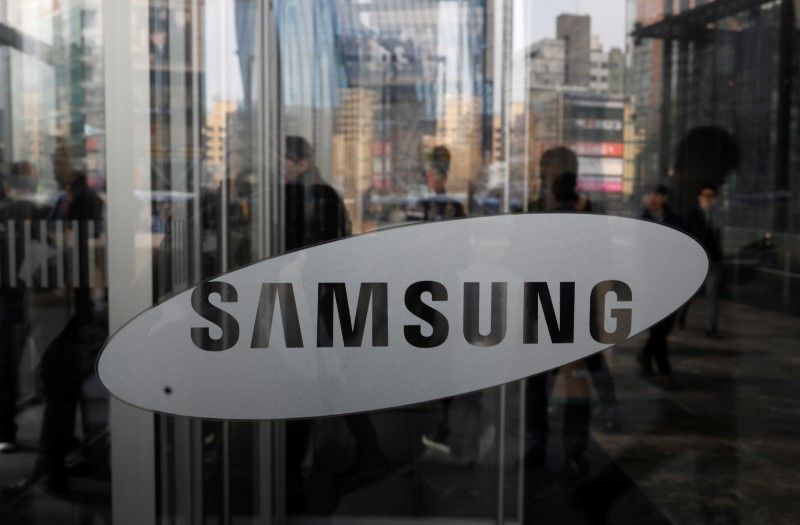Investing.com’s stocks of the week
By Joyce Lee
SEOUL (Reuters) - Shares in Samsung Electronics Co Ltd (KS:005930) dipped slightly on Friday but trading activity surged after a 50:1 stock split aimed at making it easier for retail investors to buy into the South Korean technology giant.
The shares were trading at 52,200 won ($48.50), down 1.5 percent from the basis price of 53,000 won per share, which Korea Exchange said was calculated by dividing the shares' last pre-split closing price by 50. The benchmark KOSPI (KS11) was down 0.6 percent.
Analysts said trading volumes jumped as more investors traded, and attributed the slightly weaker share price to broad concerns about slowing memory chip market conditions since Samsung Electronics share trading was halted after April 27.
"I bought 10 shares in Samsung Electronics. After I return from my military service hopefully it'll be worth enough money to buy a car," said Kim Tae-sik, a college student.
Retail investors also commented on social media and investor forums, with one saying that "the Samsung Electronics trading screen is like a madhouse," while others debated whether to buy now or wait.
As of 0120 GMT, turnover for Samsung shares amounted to 1.08 trillion won ($1.00 billion), accounting for 27 percent of the main board's KOSPI total turnover. Samsung accounted for an average of 8 percent of total turnover in the one month before the split, according to Thomson Reuters data.
Shares in the global leader in semiconductors, televisions and smartphones traded at 2.65 million won ($2,467.48) each prior to the split, putting them out of reach of retail investors.
Once known as the "emperor stock" for its high price, South Korean media renamed the shares the "people's stock" after the split.
Analysts said Samsung's recent efforts to boost shareholder returns would encourage retail investors to take a larger portion of the company than they had previously.
Samsung had 70 trillion won ($65 billion) in net cash at the end of March and is giving out yearly dividends of 9.6 trillion won as part of a three-year shareholder return policy for 2018-2020.
By dispersing shares among a greater number of investors, the split also could help owner family members and affiliate companies, the controlling shareholders, fend off attempts by other shareholders to have a greater say over the company's affairs, analysts said.
"In the case of Samsung Electronics, whose affiliates control about a 20 percent stake, and only 15 percent stakes have voting rights, the stock split is meaningful," said Lee Seung-woo, analyst at Eugene Investment & Securities.
Samsung Electronics accounted for around 20 percent of the main KOSPI (KS11) index's market capitalization as of early Friday.
($1 = 1,076.2000 won)
